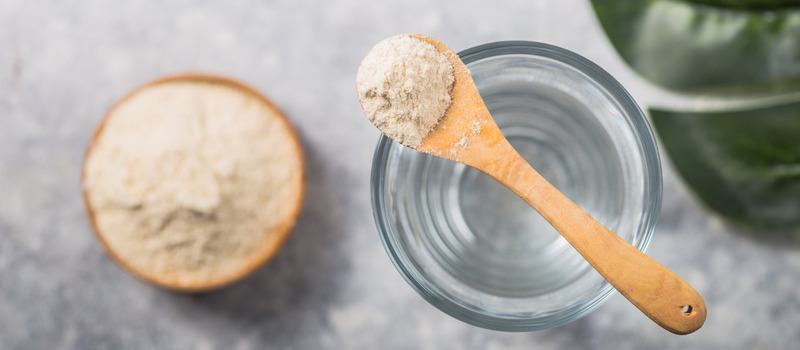
Collagen: What You Need to Know
Published June 19, 2023
Collagen is an important structural protein found in human skin, bones and connective tissues, and has become an increasingly popular choice for Australian’s looking to maintain healthy hair, skin and nails. Here, we’ll explore the various benefits of taking collagen supplements, as well as provide a deeper understanding of the role collagen plays in your hair, cartilage, bones & skin health.
What is collagen and why is it important for the body
Collagen is the most abundant structural protein found within all animals, including humans. It creates structure and framework for your cells and tissues and vital for maintaining the elasticity and strength of our skin and plays important roles in tissue repair & cellular communication. Collagen also helps with bone growth, healing, and repair, making it essential for maintaining healthy bones. Similarly, collagen is a vital component in muscle and tendon tissue, promoting muscle growth and overall body strength. As we grow older, our natural collagen production decreases, leading to weakened and aging skin, brittle bones, and joint problems. You can help to maintain your production of collagen through a nutritious diet of high-protein foods containing collagen peptides, as well as supplements that can help to support collagen production.
How does collagen work?
Collagen is a fascinating protein that works like a glue that holds everything together, providing structure and support for our other cells. Collagen is produced naturally in the body, and as we age, our bodies start to produce less of it. Decreases in naturally produced collagen (also called endogenous collagen) is a key contribution signs of ageing, such as wrinkles and joint pain as your cells begin to lose elasticity. When you take collagen supplements (or, exogenous collagen), it can help to maintain and support the levels of collagen in your body, which can assist in connective tissue formation, and support hair & skin health.
Types of collagen and what they are used for
There are a total of 28 different types of collagen, each with their own unique properties and functions. Type I collagen is the most abundant in the body and is found in our skin, bones, tendons, and other connective tissues. Type 1 collagen accounts for 90% of the collagen within the human body. Meanwhile, Type II collagen is found exclusively in our cartilage, making it crucial for joint health. And Type III collagen, which is often found alongside Type I collagen, is important for keeping our blood vessels and internal organs healthy.
Benefits of taking a collagen supplement
When looking for a collagen supplement, be sure to select one which contains hydrolysed collage or collagen peptides, as these smaller building blocks of collagen are far easier for our bodies to absorb. Incorporating a collagen supplement into your daily routine can have many benefits, including improving skin elasticity and promoting healthy hair. With all of these potential benefits, it’s no wonder that collagen supplements have become increasingly popular in recent years. Taking care of your body from the inside out is truly the key to feeling and looking your best.
Importance of collagen for cartilage
Collagen comprises about 60% of cartilage, a very firm tissue that surrounds bones and cushions them from the shock of high-impact movements; so a breakdown in collagen could lead to a loss of cartilage and joint problems. Unfortunately, as we age, our bodies produce less collagen, leading to the deterioration of cartilage and increased risk of joint pain and stiffness. The protein molecule that is collagen serves as a building block for the growth and repair of cartilage tissue, allowing joints to function optimally.
Collagen for joint, bone and muscle health
Collagen is the building block of our bones, joints, and muscles, making it an essential component for overall health and wellness. A recent study in young adult athletes showed collagen supplementation may help to reduce joint pain during exercise as collagen supports the repair of microinjuries within cartilage. In addition to supporting joint health, collagen also plays a role in promoting healthy bones and muscles. As our bodies naturally produce less collagen, this can impact bone density and muscle mass.
How does collagen improve skin elasticity?
Collagen plays a key role in skin elasticity, making it appear plump and supple. Collagen stimulates the production of new skin cells and promotes the synthesis of elastin fibers, making the skin more firm and elastic.
Foods that support collagen production
Your body is unable to absorb collagen in its complete form, and instead must break it down to a hydrolysed or peptide form. Therefore, consuming foods high in collagen won’t immediately raise your body’s collagen levels. Nevertheless, a variety of foods that offer the essential raw materials for collagen production can be consumed as part of a balanced diet. Proline and glycine, two amino acids, are present in these foods. Additionally required for the process are vitamin C, zinc, and copper. You can maximise your natural collagen production by eating a varied diet rich in whole foods like fruits and vegetables, lean meat, seafood and whole grains.
If you’re looking to boost your collagen intake, Nature’s Own Collagen + Skin Support helps to maintain collagen formation and support hair, nail and skin health.
Always read the label and follow the directions for use.
MAT-AU-2300988
Learn about which Nature's Own product may be appropriate for you.
SEE THE PRODUCTS HERE







